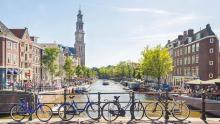This program will facilitate the study of urban social control through a comparative analysis of control in Seattle and Amsterdam. By living in and studying two dense urban cities, students will explore the variety of social processes by which cities are rendered orderly. We will be interested in considering whether and how ordering processes might differ in an American city in contrast to a Dutch city. The program is designed to help students understand the key control mechanisms that make cities function, and to compare how these mechanisms work in two different cities, Seattle and Amsterdam. Through close readings, active class discussions, and fieldwork, we will develop an understanding of social control in both theory and practice, and do so through a comparative analysis of the two cities and the cultures of which they are a part. After the conclusion of this program, students will possess a deeper appreciation for the overt and covert means by which urban areas are rendered orderly, and an understanding of the larger political and philosophical questions those ordering processes necessarily generate.
Students will conduct field work in Seattle during the quarter before leaving for Amsterdam. While in Amsterdam students will be immersed in the local culture, will attend lectures from local faculty, participate in class discussions, and participate in group activities. These activities will include exploring a gentrifying neighborhood in Amsterdam, touring Amsterdam's Red Light District, visiting a marijuana coffee shop, and taking a trip to The Hague, among others.
As a whole, the program will engage students in a comparative study of two urban cities and their respective methods of social control, while creating in them more engaged, critical, and imaginative thinkers and citizens.
Information Sessions (all held in Smith M261):
- Typically held in January
Program Director:
- Ann Frost
Program Cost:
- $4,650
Application deadline:
- TBD
Credits:
- 6, 3 credit Spring Prep Class
